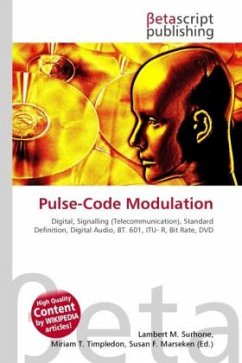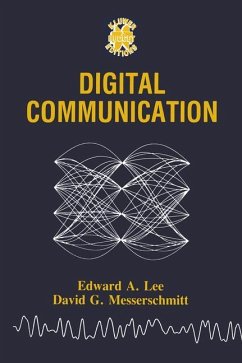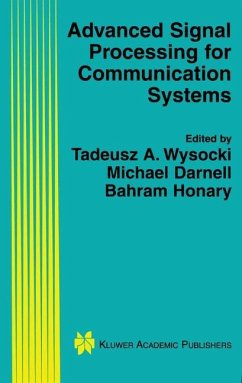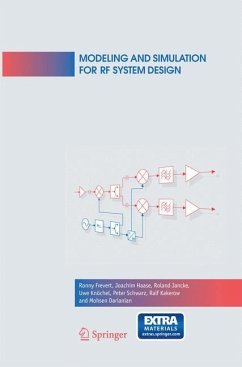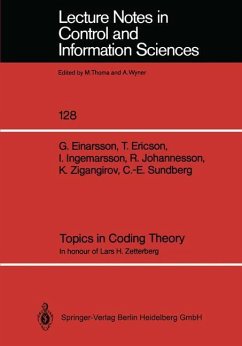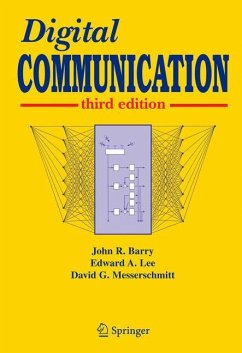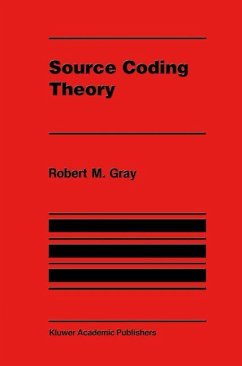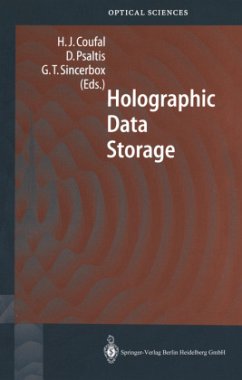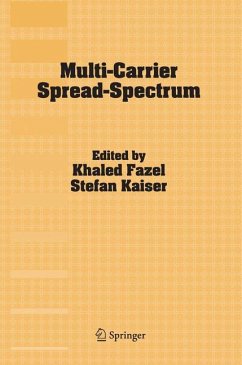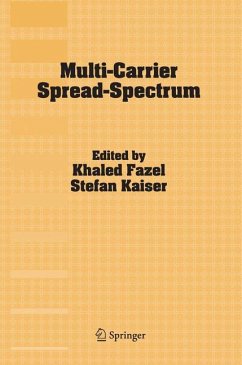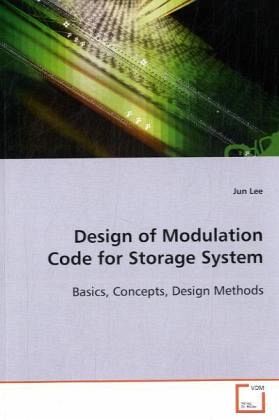
Design of Modulation Code for Storage System
Basics, Concepts, Design Methods
Versandkostenfrei!
Versandfertig in 6-10 Tagen
32,99 €
inkl. MwSt.

PAYBACK Punkte
16 °P sammeln!
Modulation code for optical recording systems havebeen concentrated on the combined DC-free andrunlength-limited (RLL) code, in short DCRLL code.However, the design of high rate DCRLL codesatisfying all of two constraints is far fromobvious. Certainly, if channel is not free of errors,it is pointless to feed the sequences only satisfyingRLL constraints.The weakly constrained coding schemecan accomplish the higher rate while it mayrelatively cause error in channel. The problem can besolved by designing the code with error correctioncapability. In this dissertation, in order toaccomplish the abo...
Modulation code for optical recording systems have
been concentrated on the combined DC-free and
runlength-limited (RLL) code, in short DCRLL code.
However, the design of high rate DCRLL code
satisfying all of two constraints is far from
obvious. Certainly, if channel is not free of errors,
it is pointless to feed the sequences only satisfying
RLL constraints.The weakly constrained coding scheme
can accomplish the higher rate while it may
relatively cause error in channel. The problem can be
solved by designing the code with error correction
capability. In this dissertation, in order to
accomplish the above goals, low-density parity-check
coded multimode code (LDPCCMC) and selection criteria
are developed. The error control of LDPCCMC is
conducted by the low-density parity-check (LDPC)
code, and its high rate and DC-free properties are
obtained by the design of multimode code using LDPC
matrixes and the aid of selection criteria,
respectively. I think that this research will be
useful to anyone who may be interested in channel
coding for storage system.
been concentrated on the combined DC-free and
runlength-limited (RLL) code, in short DCRLL code.
However, the design of high rate DCRLL code
satisfying all of two constraints is far from
obvious. Certainly, if channel is not free of errors,
it is pointless to feed the sequences only satisfying
RLL constraints.The weakly constrained coding scheme
can accomplish the higher rate while it may
relatively cause error in channel. The problem can be
solved by designing the code with error correction
capability. In this dissertation, in order to
accomplish the above goals, low-density parity-check
coded multimode code (LDPCCMC) and selection criteria
are developed. The error control of LDPCCMC is
conducted by the low-density parity-check (LDPC)
code, and its high rate and DC-free properties are
obtained by the design of multimode code using LDPC
matrixes and the aid of selection criteria,
respectively. I think that this research will be
useful to anyone who may be interested in channel
coding for storage system.



